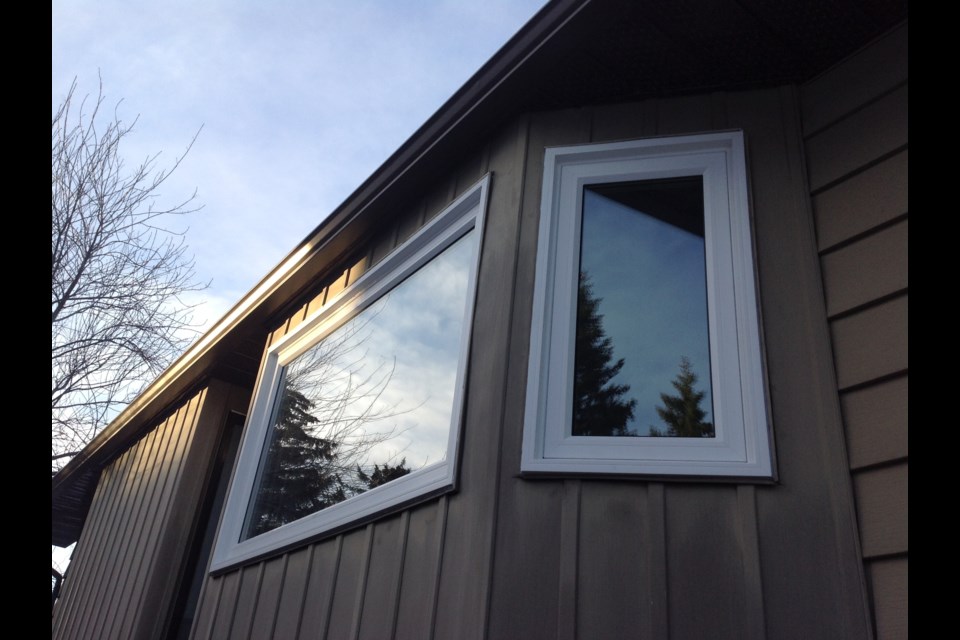When renovating your house, window replacement is a top home improvement priority, especially if you want to go green and improve the energy efficiency of your house.
While many homeowners concentrate on new window size, style or the type of glass to install, the most crucial component is often overlooked—your window frames.
The visual attractiveness, energy efficiency, and maintenance requirements of your windows over their lifetime will be significantly influenced by the framing material you choose.
These are the four most commonly used window frame materials and everything you need to know about them.
uPVC window frames
Unplasticized polyvinyl chloride (uPVC) does not contain phthalates or BPA, making it a safe product for the environment while still maintaining the benefits of a vinyl window frame. uPVC is a commonly used material for window construction, featuring superior thermal efficiency and amazing durability.
Vinyl windows have become increasingly popular among homeowners interested in a cost-effective solution and attractive design. According to the Cost vs. Value Report, they offer a good ROI of around 74.3 percent.
These frames typically come in white or neutral colours; however, applying surface treatments during manufacturing can offer wider options for colour selection.
This highly-durable, water-resistant material is easy to install, requires little care, and can withstand extreme temperature changes. According to many Richmond window replacement experts, vinyl windows might serve you up to 40 years with occasional maintenance.
Vinyl frames are a great option if you want to cut down your energy bills. Modern vinyl windows come with features like warm edge spacers, foam-enhanced frames, and glass with low emissivity coating to lessen energy transfer and the impact of light penetration, making them energy-efficient.
Aluminum window frames
If you prefer a low-maintenance window frame, aluminum should be your top choice because it won't bend, warp, peel, or break. The lifespan of aluminum is around 43.6 years, so you won't have to worry about replacing them for a long time.
It is a little more costly than vinyl or fiberglass but still a cheaper option than wood. Due to its tempting price point, it is a popular window material for large openings and commercial buildings.
Unlike wood, vinyl, or fiberglass, aluminum won't deteriorate from exposure to sunshine or develop rot or mildew from frequent weather-related problems.
When it comes to energy efficiency, experts from Ecoline Windows Richmond say that aluminum frames do not rank very high as compared to both vinyl and wood windows. They naturally transmit heat, which makes them poor insulators.
When it gets chilly, aluminum can develop condensation, which can cause window frosting and damage to property.
As one of most eco-friendly materials available and are 100% recyclable, aluminum window frames have a positive environmental impact as well.
Wood window frames
Traditional wood frames are popular among homeowners opting for a classic home look. These versatile frames come in various styles and designs, such as cherry, oak, mahogany, maple, walnut, and jarrah. They provide a warm appearance for both interior and exterior spaces, and you can paint them in any colour you desire.
When it comes to the price, wood is the most expensive material because of the craftsmanship and the detailing. But the cost is justified by incredible energy-efficiency performance, as wood is an excellent insulator and offers better sound filtering.
However, maintenance is a little tricky with wooden frames. They require more frequent care compared to vinyl or aluminum. You'll have to repaint or restain wood regularly to keep them looking good and protect them from quickly decaying. If properly maintained, wooden frame windows can last for over 40 years.
Wood is entirely recyclable because it is a natural resource, which makes these frames eco-friendly. That said, these frames are susceptible to environmental damage, so pairing them with durable exterior cladding is recommended for better durability.
Fiberglass window frames
Those based in an area with extreme weather conditions and temperature fluctuations should consider fiberglass — lightweight window frames that are made with glass fibers and resin. Since fiberglass expands and contracts at a pace similar to glass, it retains its structural integrity well, even during sweltering summers and icy winters.
When analyzing B.C. window replacement services, fiberglass frames are generally cheaper than wood and aluminum but more expensive than vinyl.
In some ways, fiberglass is similar to vinyl. It is low maintenance, durable and energy-efficient. However, one thing that distinguishes it is that, unlike vinyl, you can easily paint it any colour of your choice. The only downside to fiberglass is that it may seem a little flat or boring if it is not painted.
Moreover, this frame material offers 15% more energy efficiency than vinyl due to foam-filled cores that make it highly energy efficient. These frames are weather resistant and do not warp, rot, or peel even with temperature fluctuations.
Aluminum, vinyl, fiberglass, and wooden frames are all common choices, but each has advantages and disadvantages of its own. With various types of window frames available nowadays, you’re bound to find the right one for your house.



